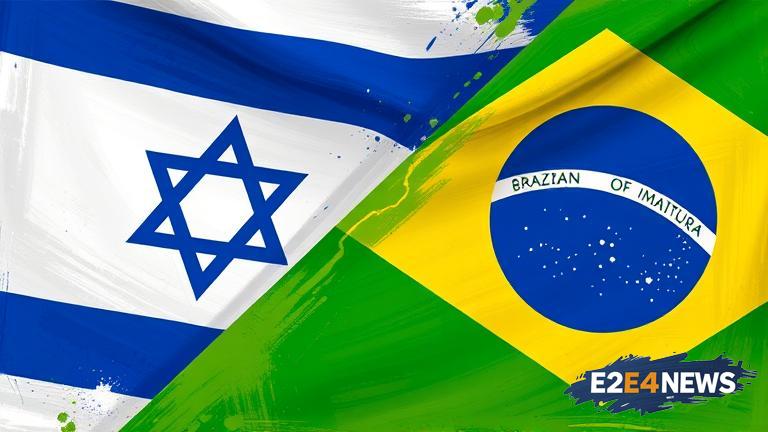Brazil has made a significant move in its diplomatic relations with Israel by rejecting the appointment of a new Israeli ambassador. This decision comes amidst growing tensions between the two nations, particularly with regards to human rights issues and Brazil’s stance on the Israeli-Palestinian conflict. The Brazilian government has been vocal about its support for the Palestinian cause and has consistently called for a two-state solution. The rejection of the new ambassador is seen as a strong statement by Brazil, emphasizing its commitment to upholding human rights and international law. The Israeli government had nominated a new ambassador to Brazil, but the Brazilian authorities have refused to grant accreditation, citing concerns over the nominee’s suitability for the role. This move is likely to further strain relations between Brazil and Israel, which have been deteriorating in recent years. The Brazilian government has been critical of Israel’s actions in the occupied territories, including the expansion of settlements and the treatment of Palestinian prisoners. Brazil has also been a strong supporter of the Palestinian bid for statehood at the United Nations. The rejection of the new ambassador is seen as a significant escalation of tensions between the two nations, and it remains to be seen how Israel will respond to this move. The Brazilian government has stated that it will continue to support the Palestinian people and will work towards a peaceful resolution to the conflict. The decision to reject the new ambassador has been welcomed by Palestinian activists and supporters around the world, who see it as a significant victory for the Palestinian cause. However, the move has also been criticized by some who argue that it will damage relations between Brazil and Israel and harm economic ties between the two nations. The Brazilian government has emphasized that its decision is based on principles of human rights and international law, and that it will not compromise on these values. The rejection of the new ambassador is also seen as a reflection of the growing divide between Brazil and Israel on issues such as trade and security. The two nations have historically had strong economic ties, but in recent years, Brazil has sought to diversify its trade relationships and reduce its dependence on Israel. The decision to reject the new ambassador is likely to have significant implications for the future of relations between Brazil and Israel, and it remains to be seen how the situation will unfold. The Brazilian government has stated that it is committed to finding a peaceful resolution to the conflict, but it will not compromise on its values and principles. The rejection of the new ambassador is a significant development in the ongoing saga of Brazilian-Israeli relations, and it will be closely watched by diplomats and observers around the world. The move is also seen as a reflection of the growing influence of the Palestinian lobby in Brazil, which has been actively campaigning for the Brazilian government to take a stronger stance against Israel. The Brazilian government has emphasized that its decision is based on a commitment to human rights and international law, and that it will continue to support the Palestinian people in their struggle for self-determination. The rejection of the new ambassador is a significant blow to Israeli diplomacy, and it highlights the growing challenges faced by Israel in its relations with other nations. The decision is also seen as a reflection of the changing global landscape, with many nations increasingly critical of Israel’s actions in the occupied territories. The Brazilian government has stated that it will continue to work towards a peaceful resolution to the conflict, but it will not compromise on its values and principles. The rejection of the new ambassador is a significant development in the ongoing conflict, and it will be closely watched by diplomats and observers around the world.
